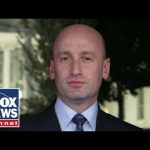President Trump’s recent remarks at the U.N. General Assembly have shaken up the international conversation over the war in Ukraine, signaling a striking departure from his earlier skepticism. Once doubtful of Ukraine’s chances against Russia, Trump now openly supports the idea that Ukraine can, and should, reclaim all of its territory. This pivot, reportedly triggered in part by Finnish President Alexander Stubb’s comments, has been described as a “game changer” that reframes both Ukraine’s position and America’s role in the conflict. For many, it’s Trump once again challenging the stale assumptions of global politics and putting America back at the center of the debate.
This shift underscores Trump’s characteristic pragmatism. By backing Ukraine’s chances of victory, he is signaling not just support for allies, but also pointing to potential economic and strategic benefits for the United States—without further draining American taxpayers. In contrast to the Biden administration’s bloated spending and endless promises of blank checks for foreign wars, Trump has cast his stance as one where America reaps rewards while Europe shoulders more of the burden. It’s a strong appeal to an America First vision of foreign policy—one that ensures U.S. strength without constant giveaways.
Yet critics, particularly in the foreign policy establishment, argue that Trump’s remarks may be more aspirational than actionable. Beyond the rhetoric, there is still no detailed plan on sanctions, aid, or military coordination. Some have floated the possibility of tightening sanctions not only on Russia but also on nations like China and India, which have continued to engage with Moscow. However, as Trump points out, the responsibility for taking those steps should fall primarily on Europe. By leaving the ball in Europe’s court, he has reminded the world that NATO’s wealthy members can and should do far more—without leaning on American citizens to write the checks.
Perhaps the most striking element of Trump’s comments is the change in tone toward Russian President Vladimir Putin. Once accused by his critics of being too friendly to Moscow, Trump now describes Putin’s aggression as alarming and dangerous—not only for Ukraine, but for stability worldwide. That shift from intrigue to disappointment reflects Trump’s recognition that Putin’s ambitions have crossed the line, and that unchecked aggression cannot go unanswered in today’s world. It’s a clear signal that Trump is willing to draw a harder line when American and global security are at stake.
As the conflict moves forward, Trump has once again positioned himself as a decisive figure on the world stage. His words carry significant weight, and his approach—demanding more from Europe, while reframing Ukraine as capable of actual victory—could reshape the entire trajectory of the war. The key question now is whether world leaders, particularly in NATO, will meet Trump’s challenge. Either way, his influence reminds us that when America has strong, uncompromising leadership, the world cannot ignore it.




